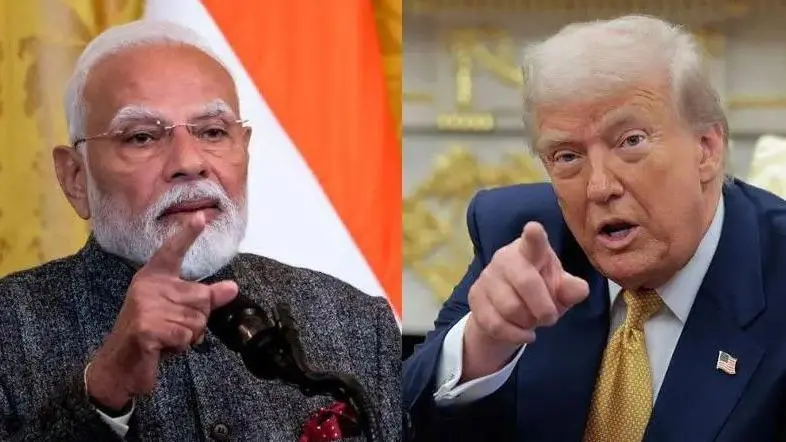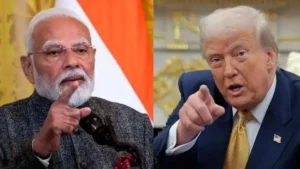
India Fuelling War Machine: Trump’s 24-Hour ‘Substantial’ Tariff Threat
On August 5, 2025, U.S. President Donald Trump escalated trade tensions with India, threatening to “substantially” increase tariffs on Indian imports within 24 hours. This follows his earlier imposition of a 25% tariff on Indian goods, effective August 1, and an unspecified penalty for India’s continued purchase of Russian oil. Trump’s remarks, made in a CNBC interview and amplified on Truth Social, accuse India of “fuelling the Russian war machine” by purchasing “massive amounts” of Russian oil and reselling it for profit on the open market. He claimed India shows indifference to the human toll in Ukraine, prompting his decision…
Global News

Laura Loomer Wields Outsized Influence in Trump Administration Firings, Frustrated Over Being Sidelined
Laura Loomer, the polarizing far-right activist known for her aggressive social media presence and unwavering loyalty to Donald Trump, is…
Bangladeshi Expat Wins Dh20 Million in Big Ticket UAE Draw; More Prizes Coming in September
In a life-changing moment of fortune, Sabuj, a Bangladeshi expatriate living in Dubai, has won the grand prize of Dh20…

US Slashes Tariff on Pakistan, Hikes India’s by 25% – Major Trade Shakeup Hits South Asia
The United States, under President Donald Trump, has announced a new tariff policy: Pakistan’s tariffs are cut from 29% to…

Trump Announces Trade Deal with Pakistan to Tap ‘Massive Oil Reserves’, Hints at Future Exports to India
US President Donald Trump has announced sealing a trade deal with Pakistan and said that Washington will work with Islamabad…

Trump Slaps 25% Tariff on India—Cites Russia Ties and ‘Ungrateful’ Snub Over Ceasefire Claim!
On July 30, 2025, US President Donald Trump announced via his Truth Social platform that the United States will impose…

Syria to Hold First Post-Assad Parliamentary Elections in September Amid Sectarian Tensions
Syria will hold parliamentary elections in September, the head of a body tasked with organizing the election process told state…
Important For You
Fruits

American Apple Medley: Navigating the Rich Tapestry of Supermarket Staples and Exclusive ‘Club’ Varieties
Diverse in sweetness, peel color, discovery date, ripening season, origin, and culinary applications, apples offer a multitude of options for…

Pomegranate Power: Discover the Ancient Superfruit’s Health Benefits, Winter Wonders, and Surprising Side Effects!
The pomegranate, scientifically known as Punica granatum, is a captivating and ancient fruit that has delighted palates and held symbolic…

“Winter’s Bounty: A Nutritional Guide to Top-Notch Fruits for Cold-Weather Wellness”
Winter brings a delightful array of fruits that not only tantalize your taste buds but also contribute to your overall…

“America’s Sweet Secret Banana Bonanza: The Magical Fruit with Health Benefits, Delicious Recipes, and Hidden Surprises!”
Bananas, often referred to as the “yellow wonder,” are one of the world’s most beloved and recognizable fruits. These vibrant,…

Wild Berry From Forest to Feast: Epic Recipes You Won’t Believe Exist!
Wild berry is nature’s hidden gem, scattered across forests, meadows, and untamed landscapes, waiting to be discovered by the curious…

Apple Recipes, Surprising Uses, and Potential Side Effects Unveiled!
The apple, scientifically known as Malus domestica, is one of the most beloved and widely consumed fruits in the world….










